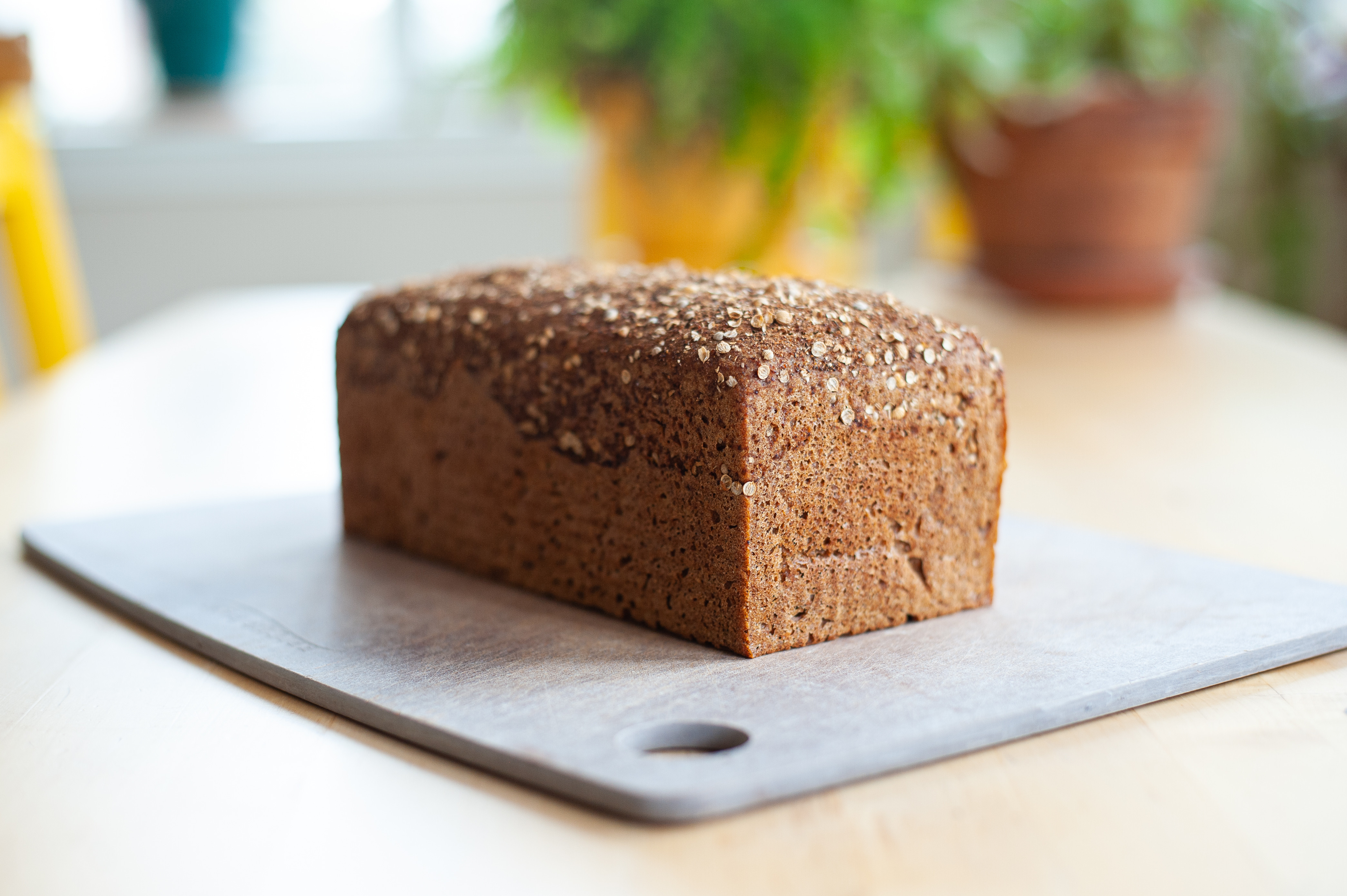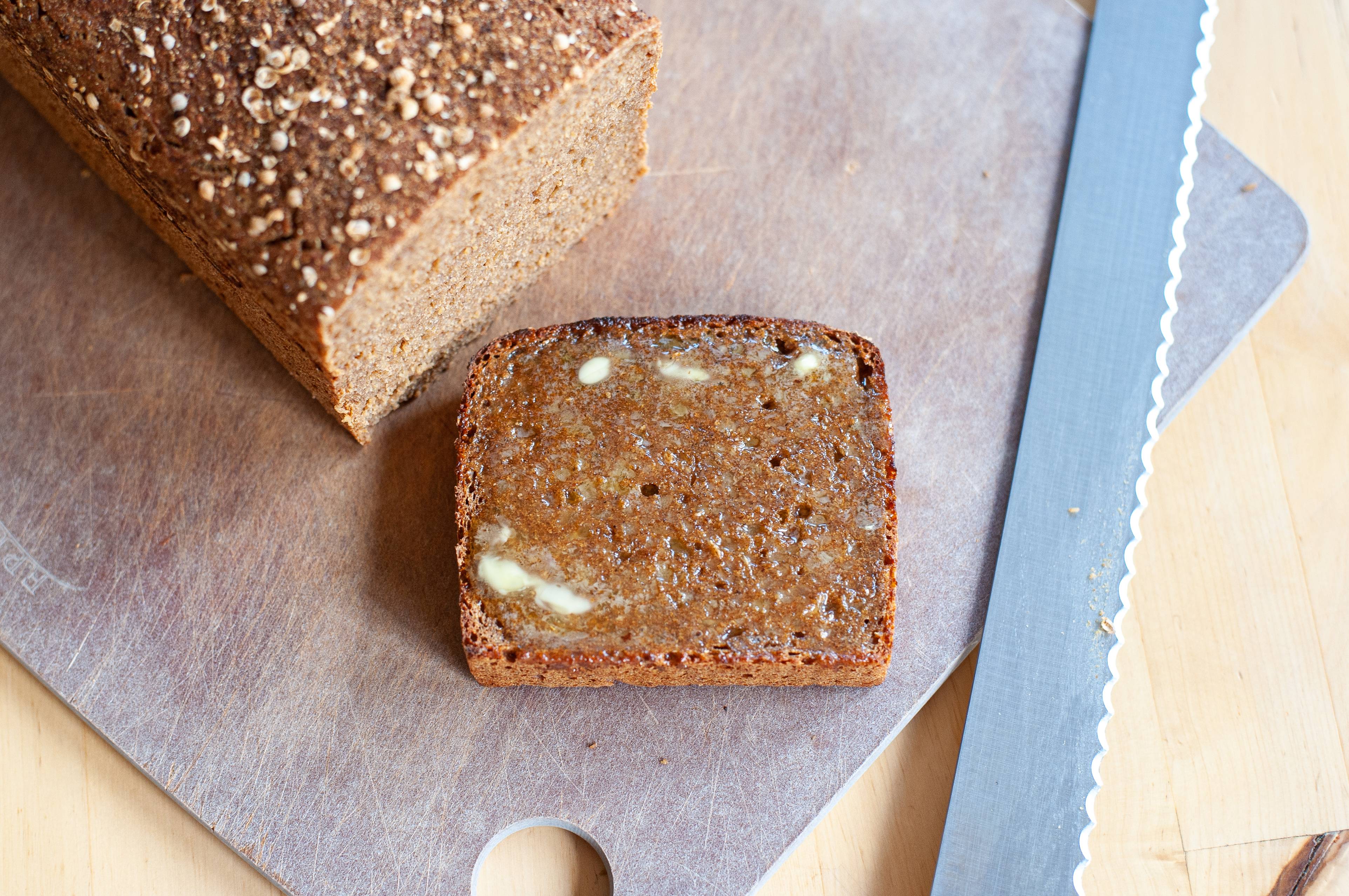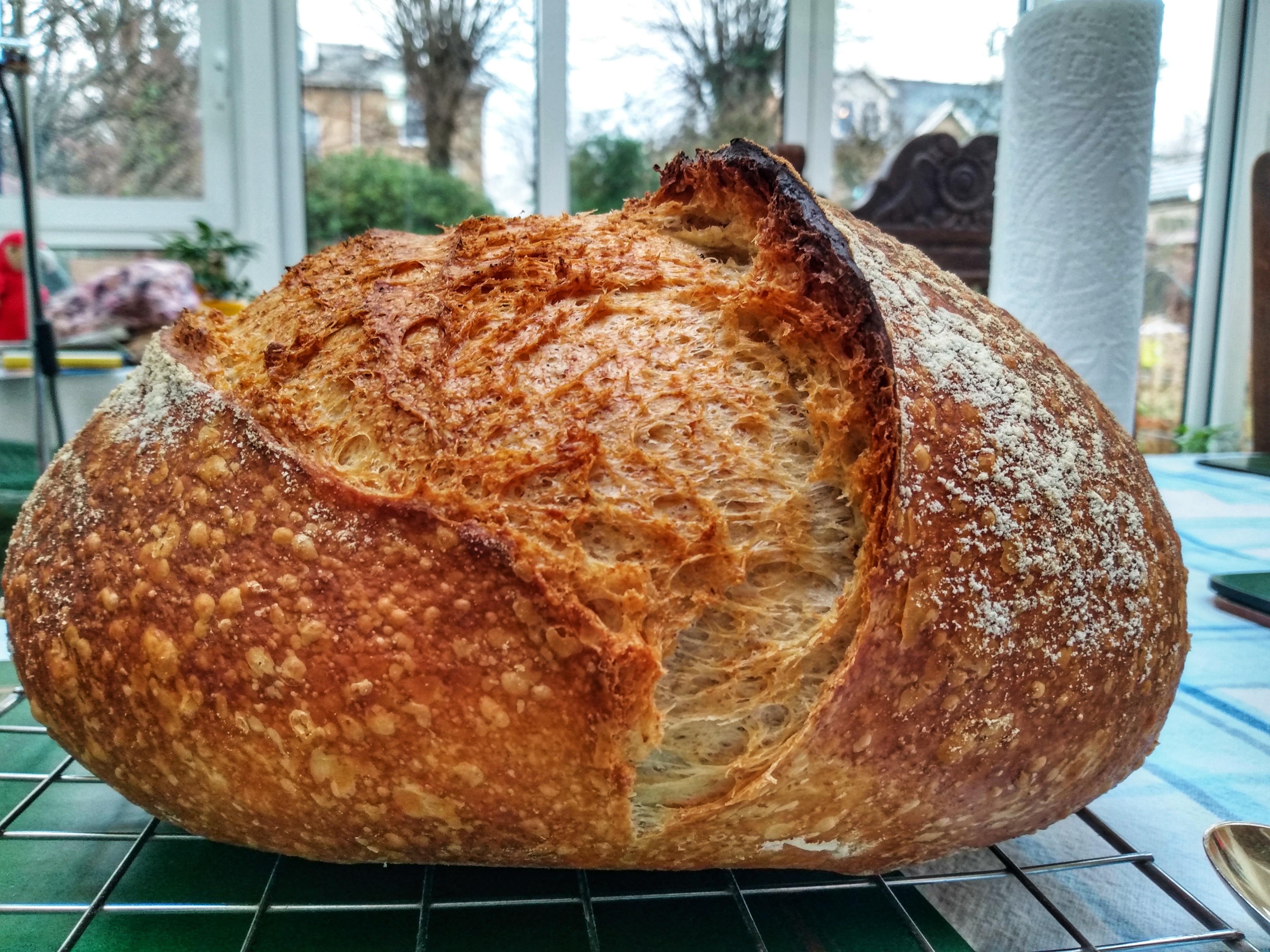I've been on a savory bread kick lately. This bread with sun dried tomatoes and roasted red peppers was my latest to keep with the savory trend.
I blended some oil packed sun dried tomatoes and roasted red peppers into a puree and then combined that with the flour to give this bread a huge boost of flavor.
Ingredients
* 900g bread flour
* 100g rye flour
* 750g water
* 200g starter
* 22g sea salt
* 18g roasted red pepper
* 45g sun dried tomatoes
Basic Method
I used the 'lazy' method here which means no autolyse or starter buildup. I simply took 200g of my starter straight from the fridge and added it with the rest of the ingredients. There was an 8 hour bulk ferment at room temperature followed by 17 hour cold proof in the fridge.
For a full explanation of this method with instructions, check out this post:
Roasted Bell Pepper + Sun Dried Tomato Sourdough
Scoring close-up
Top view of one loaf
Crumb shot
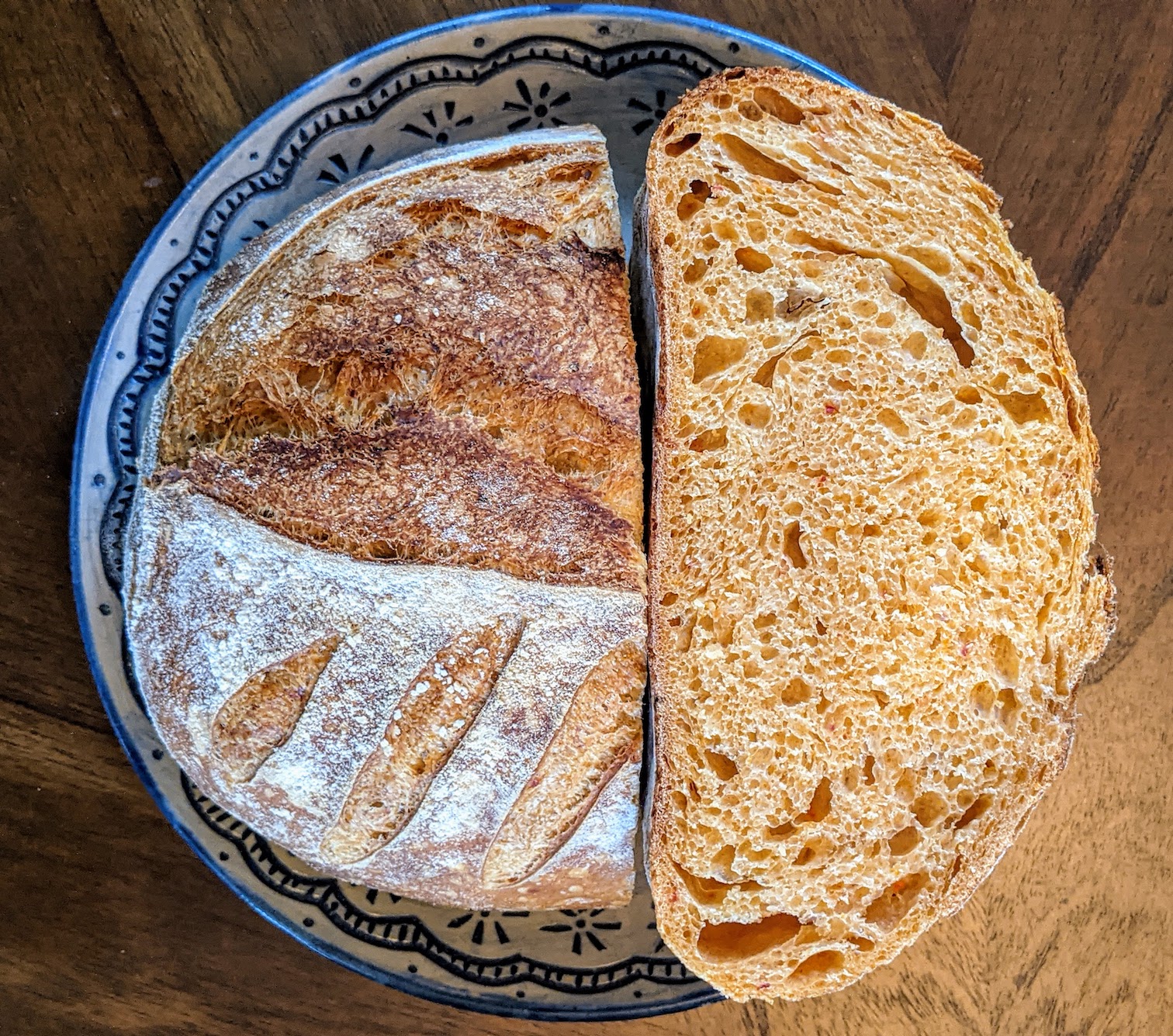
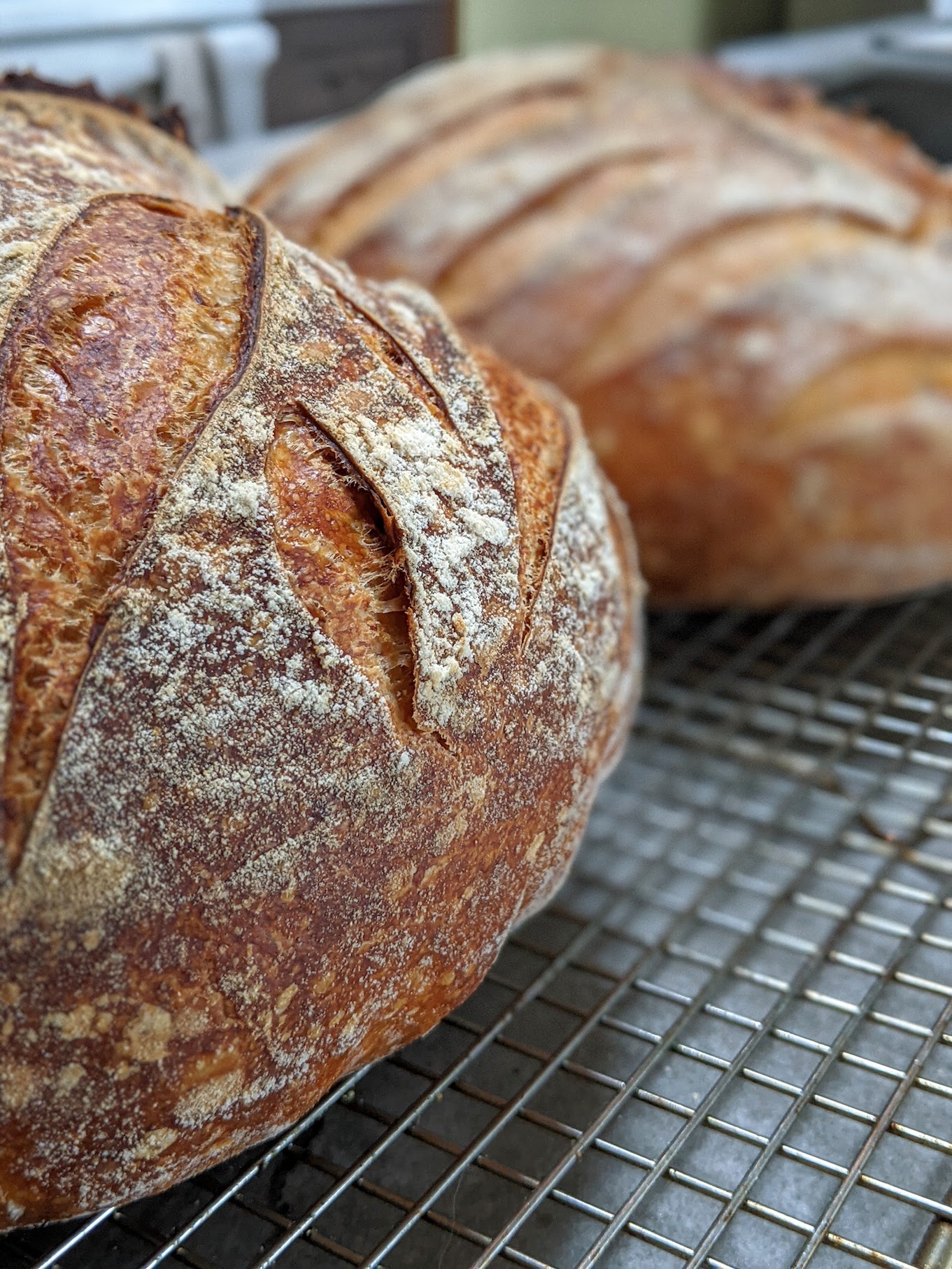
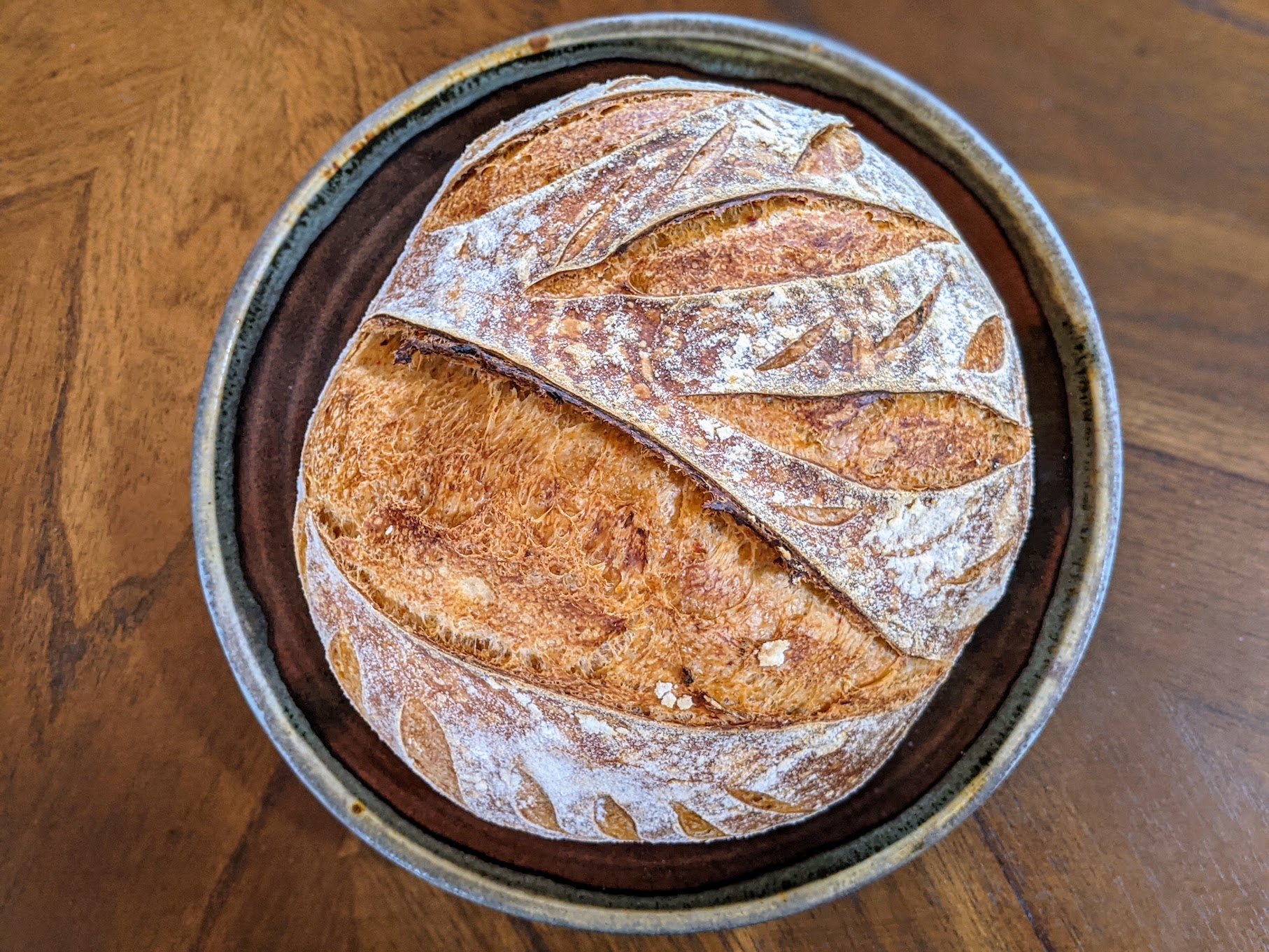
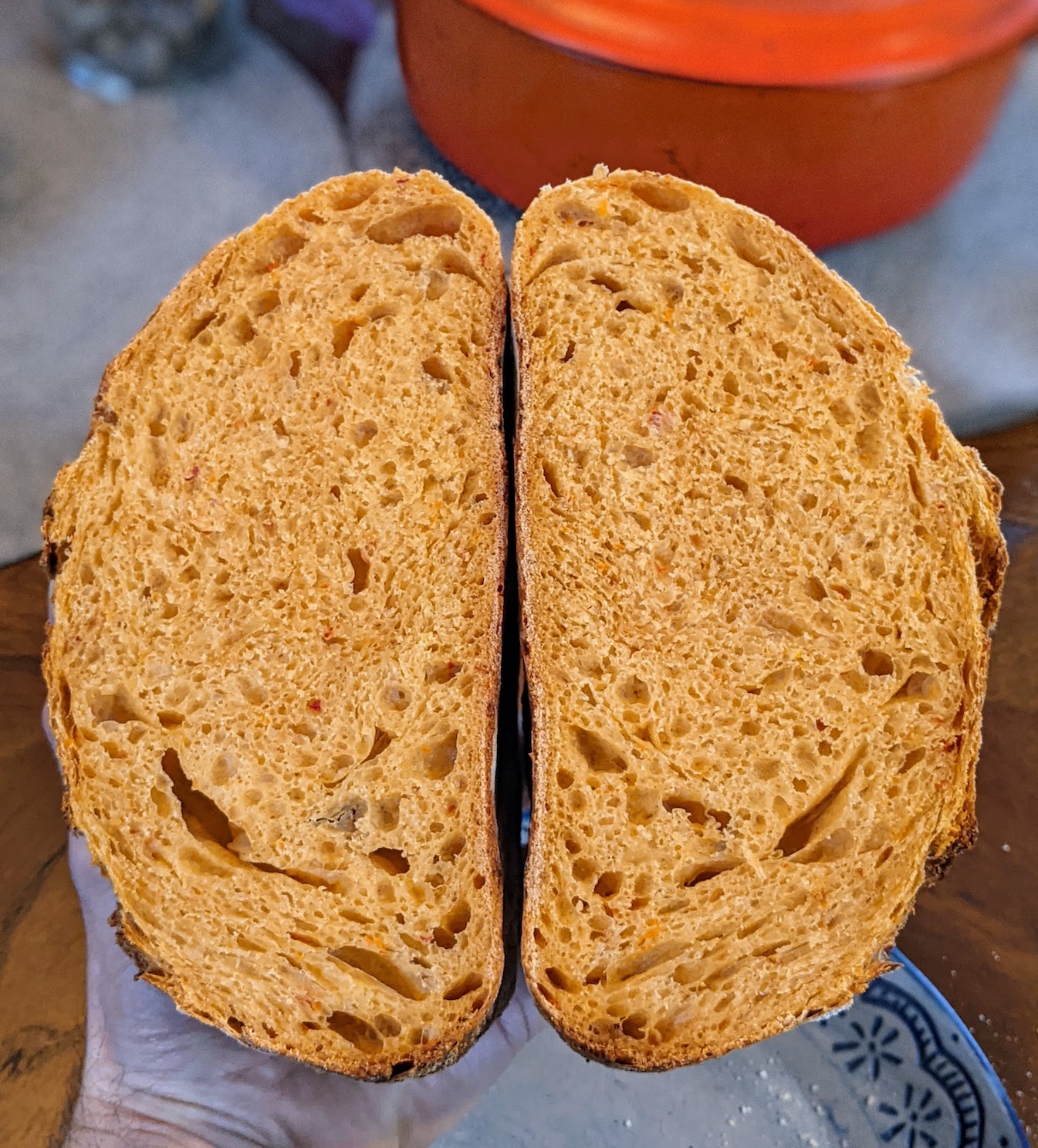





















![Craft A Brew - Safale BE-256 Yeast - Fermentis - Belgian Ale Dry Yeast - For Belgian & Strong Ales - Ingredients for Home Brewing - Beer Making Supplies - [3 Pack]](https://m.media-amazon.com/images/I/51bcKEwQmWL._SL500_.jpg)

























































